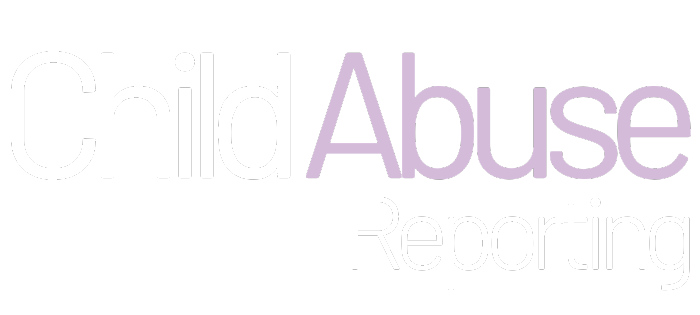“Every 73 seconds someone in the United States is sexually assaulted. Every 9 minutes that person is a child.”
Stranger Danger
June 5, 2002, was poised to be “just another day” in Elizabeth Smart’s own words, as she described her idyllic, upper-middle-class childhood in a virtual keynote address at the Bivona 2021 Child Abuse Summit in May.
Smart’s kidnapping on that fateful morning at age 14 proved to be the antithesis of another ordinary day. Seized from her bed at knifepoint as her younger sister slept next to her, Smart’s abduction made headlines across the country, igniting a massive manhunt and invoking every parent’s worst nightmare.
“No one ever spoke about kidnapping or sexual assault or rape growing up,” said Smart. There was an awareness of “stranger danger” among children, but the self-described awkward young teen at that time was just focused on graduating from junior high school. The thought of being stolen from her family and friends was something that had never entered her mind.

Her Story
Dressed in a simple white blouse and black blazer, with her blond hair woven in a wraparound French braid, Smart, now 33 years old, delivered the details of her horrific ordeal with stunning candor and composure.
“My captors had already taken everything away from me,” recalled Smart, referring to more than her abduction. They also robbed her of her innocence and her identity. She quickly went from “worthwhile to worthless, clean to dirty,” as her captors took her clothes, changed her name, starved and restrained her, and assaulted her physically, emotionally, and spiritually.
But in the midst of feeling scared, lost, and alone, the memory of her parents’ love gave her hope and a reason to not give up.
“One adult to plant the seeds for resiliency,” is all you need, said Smart. She posed the question, “Whose opinions decide your worth?” In her case, it was her mother’s, God’s, and her own opinions about her self-worth—not those of her abusers—that gave her the courage and strength to survive.
In 2013, “My Story,” was published and became a New York Times bestseller. Recounting her nine months in captivity— and her evolving life of advocacy for child safety—Smart’s memoir is a devastating but remarkable account of resilience and, surprisingly, gratitude.
While she wishes her abduction had never happened, she is grateful for the opportunity to share her story, so other survivors don’t feel so alone.
Belief and Support
“Believe the survivor,” urged Smart, in response to what advice she gives to people who work with victims. “Help them understand that they didn’t do anything wrong, that what happened to them was not their fault” to help them feel comfortable and safe. “And don’t force a timeline.”
She expressed her appreciation for an advocate who had explained the intake and legal process to her following her rescue and ensuing trial. Understanding that she had choices was the most effective way for her to re-establish a feeling of safety.
Smart added that it’s also important for people surrounding or helping a victim to “take care of themselves, so they are in a position to support the victim when they need help.” She recalled her own parents seeing a therapist during and after her ordeal, who laid the groundwork for them to be strong and receptive when Smart was ready to share the horrific details of what had happened to her.
“The best way to move forward is through a support system,” said Smart. “The victim needs a community around them to help them move forward.” For Smart, that was her own family. But for victims whose family members are the abusers, she advises them to “find your family,” in an advocate or therapist.
People in a position to provide that support need to remind the victim that, “They are every bit as worthy as everyone else to be loved and have good things happen to them.”
Survival and Gratitude
“To be happy,” said Smart, “is the best punishment you could give (to your abusers). Move forward with your life, do all the things you want to do, instead of feeling sorry for yourself.”
Her advice to survivors of trauma is to not let anyone steal life away from them. “Never give up. Happiness is possible, peace is possible.” If she had given up, it would have meant that her captors had won.
“I would have hard times, stumble and fall, cry and get angry,” admits Smart. She is careful not to sugarcoat her recovery and admits to not being able to watch certain TV shows and documentaries—even the popular animated movie, “Finding Nemo”—with themes of abduction or abuse.
“You are all heroes” concluded Smart, referring to the advocates, therapists, mandated reporters, law enforcement personnel, first responders, and forensic nurses—many of whom were in attendance at the Bivona Child Abuse Summit—who work with victims every day. “You have my deepest admiration and respect. Every survivor needs someone like you.”
Her motivation to help other victims of sexual assault led to the formation of the Elizabeth Smart Foundation. She has presented in 50 states and spoken to survivors around the world. Smart now has her own loving family or support system—a husband and three young children—who bring her much deserved love.
Maybe not every survivor has the strength, bravery, and resilience to go from child victim to adult advocate, but Smart leads by example to show the way to a life of healing, hope, and happiness.
My Story by Elizabeth Smart
https://www.barnesandnoble.com/w/my-story-elizabeth-smart/1114258640
Elizabeth Smart Foundation

